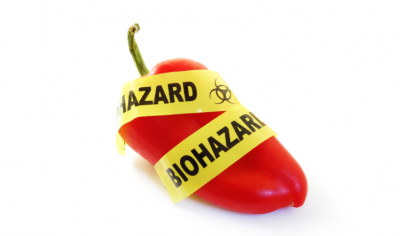Regulatory compliance feature
Keen to comply: the rise in regulatory recruitment

Demand for skilled regulatory compliance employees across the industry is at an all-time high. So says James Wilkins, managing director of CPA Recruitment, who claims food and drink manufacturers are ramping up recruitment for compliance and regulatory positions within their businesses.
Now, more than ever, food and drinks firms are becoming aware that having a strong regulatory team is key to maintaining a healthy business. But what has driven such massive interest in this area?
Despite belief to the contrary, Brexit isn’t the catalyst for food firms to bolster their regulatory teams. While the looming threat of the UK’s split from the EU has dwelt heavily on manufacturers’ minds, it is the public’s perception of the industry that is pushing producers to step up their regulatory game.
At a time when recalls have jumped 40% year-on-year to 31 October 2018, according to law firm RPC, the onus is on food and drink manufacturers to double down on ticking every box when it comes to compliance – and making sure consumers know that.
B3 Jobs managing director Marcus Brasier has experienced first-hand the steady rise in regulatory role recruitment. He claims the industry’s rush to hire for regulatory roles has been driven by consumers’ perception of food businesses. Companies are realising how vital consumer confidence is to their products and how easily that confidence can be shaken through a lack of expertise within their organisations.
Product recalls
“Product recalls are probably the biggest no-no for any manufacturer, be it food, tumble driers or cars,” says Brasier. “Not only are they costly in financial terms, but also [damaging to] a business’s reputation.
“Minimising the risk must be at the forefront of any company’s strategy and can only be done through excellent technical and quality standards, which can only be created and adhered to with the right calibre of person. The sheer volume and complexity of food law regulations is now such that more specialist personnel are needed, sometimes resulting in a rise in staff numbers.”
Product recalls are probably the biggest no-no for any manufacturer
Wilkins at CPA Recruitment agrees. For him, the rise in regulatory roles is merely a reaction to consumers wanting more noticeable, prominent information on the products they are buying – whether that’s provenance, traceability or simply clearer labelling.
“It’s forcing the retailers to drive clarity in labelling across their manufacturing base,” says Wilkins. He points out that, with a lot more nutritionally focused products out there in the market advertising their functionality, manufacturers are seeking more people versed in regulatory compliance to join their businesses – answering questions such as ‘what is legal?’ or ‘what can we legally declare?’.
CPA’s head of recruitment James Constable adds: “Manufacturers and food retailers are now more focused on issues concerning the authenticity or integrity of raw materials and clearer allergen declaration on products, in light of horsegate and Pret A Manger respectively.
More informed consumers
“Not only this, but consumers are now making more informed buying decisions concerning palm oil, vegetarianism, veganism, origin of ingredients and the recyclability of product packaging. The importance of clear and lawful labelling has become even more of a priority.”
This does not mean Brexit hasn’t played any part in companies’ decisions to hire for more regulatory roles. With the fog of confusion surrounding the UK’s departure from the EU, producers are ensuring they have the right people in place to weather the gathering regulatory storm.
B3’s Brasier advises suppliers to “at least try to prepare for all eventualities and outcomes”.
“Initially, it seemed to be ‘batten down the hatches [and] don’t invest’, because it was better to weather the storm and see how things turned out. However, given the delays, there seems to be not necessarily more confidence, but an attitude of just getting on with life as normal, while trying to cover all the bases.
Initially, it seemed to be ‘batten down the hatches, don’t invest’
“When the Brexit mess is finally resolved, one way or another, then the company will be in as strong a position as possible – match-ready as it were – although not knowing which team you’re actually going to be playing.”
So, what are the regulatory bodies doing to help? Not a lot, says Wilkins. In his view, there is a lack of support from some quarters. “Organisations [such as the Food Standards Agency (FSA)] are ill-equipped to keep up with the sheer volume of new products and ingredients flooding the market. As a result, manufacturers are having to hire for regulatory positions to cover themselves.”
Disputed by the FSA
The FSA – understandably – disputes this claim. “It’s wrong to suggest that the FSA doesn’t have the resources to manage risk properly,” says an FSA spokesman. “We have been working hard to strengthen our risk analysis process as part of our preparations for EU exit.
“This will ensure we can continue to assess food and feed safety risks and provide independent advice, so people can trust that the food they buy is safe, and is what it says it is.”
In terms of the rise in recruitment for regulatory and compliance roles in food and drink, the FSA spokesman adds: “Ultimately, it is the responsibility of all food businesses to ensure their food is safe. It is encouraging to see businesses taking that seriously including, where appropriate, creating dedicated roles in their teams to ensure they are meeting their obligations.”
Specific job roles are now being created
Of course, the regulatory role within the food and drink sector is nothing new, as Brasier explains. “There has always been a need for this function, but new legislation has become both so important and so much more complex, that more specific job roles are now being created as a result,” he says.
“Previously, hygiene and specifications functions would have been part of other job roles – and still are in smaller operations where employees wear more than one hat.”
If you’re looking for your next food and drink regulatory role, browse the latest vacancies at FoodManJobs.
Is your business currently recruiting for more personnel to handle an increased volume of regulatory queries related to Brexit? Y/N
















